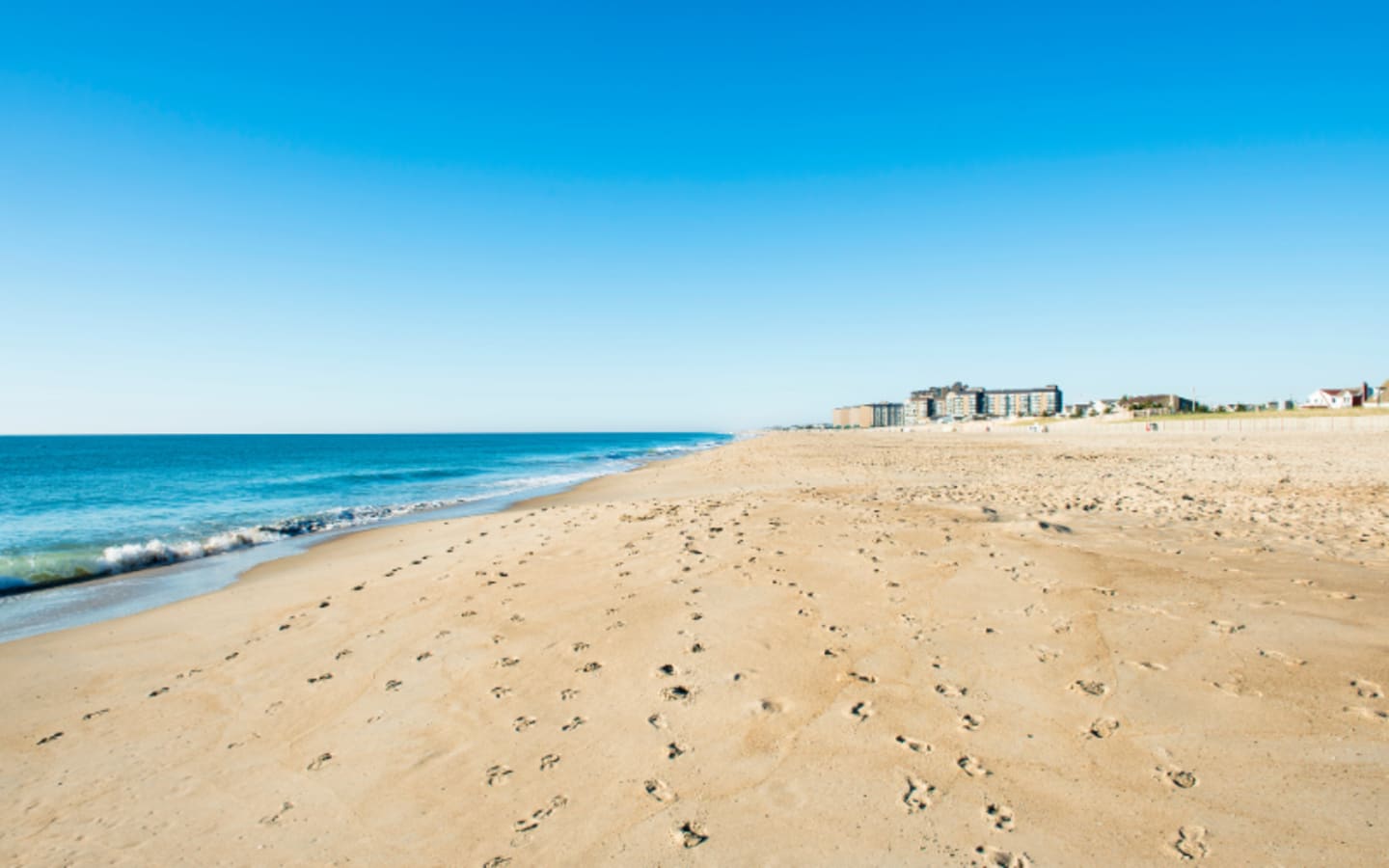Delaware’s beaches are a haven for anglers who love the thrill of casting a line from the shore, the salty breeze in their face, and the chance to reel in something big. For years, the state’s surf fishing scene has been a draw for locals and visitors alike, but a reservation system introduced in 2023 to manage crowds on drive-on beaches added a layer of planning that didn’t sit well with everyone. Now, in a move that’s got fishermen buzzing, the Delaware Department of Natural Resources and Environmental Control (DNREC) has announced a major change for the 2025 season: starting July 12, 2025, reservations are no longer required for seven out of the state’s twelve drive-on surf fishing beaches during weekends and holidays. This shake-up is set to make hitting the beach easier for those who crave a spontaneous fishing trip, while still keeping things organized at the busiest spots.
Why the Change?
The decision to drop reservations at some beaches comes after three years of fine-tuning the surf fishing reservation system, which was rolled out in response to skyrocketing demand during the pandemic. Back then, anglers were lining up at state parks the night before permits went on sale, hoping to snag one of the limited 17,000 surf fishing permits. The frenzy led DNREC to ditch the permit cap and introduce a reservation system to manage crowds on peak summer weekends and holidays. While the system worked to prevent overcrowding, it wasn’t perfect. Some anglers loved the guarantee of a spot, knowing they wouldn’t be turned away after a long drive. Others, especially locals who prefer to head to the beach on a whim when the weather’s right, found the extra step of booking a spot online or by phone a bit of a hassle.
After crunching the numbers and listening to feedback, DNREC found that not all beaches were filling up, even during peak times. “After two years of data, looking at surveys from our users, talking to our staff, it was determined that the seven beaches that we identified weren’t hitting capacity,” said Matt Ritter, Director of DNREC’s Division of Parks and Recreation. In fact, the only time these beaches hit full capacity in the last three years was during the 2025 Fourth of July weekend. That data, combined with anglers’ calls for more flexibility, led to the decision to loosen the rules for most of the state’s drive-on beaches.
Which Beaches Are Reservation-Free?
Starting July 12, 2025, anglers can roll up to the following beaches without needing to book a spot in advance on weekends or holidays:
- Key Box Beach, Delaware Seashore State Park
- Conquest Beach, Delaware Seashore State Park
- Faithful Steward Beach, Delaware Seashore State Park
- York Beach, Fenwick Island State Park
- Middle Beach, Fenwick Island State Park
- South Beach, Fenwick Island State Park
- Beach Plum Island, north of Lewes
These seven beaches make up nearly 64% of Delaware’s drive-on surf fishing beach availability, giving anglers plenty of options to cast their lines without the extra step of reserving a spot. The change is a big win for those who like to check the weather, grab their gear, and head out for a day of fishing without planning days in advance.
Where Reservations Still Apply
While the new rules open up most beaches, five high-traffic spots will still require reservations on weekends and holidays from Memorial Day through Labor Day, between 8 a.m. and 4 p.m. These beaches are:
- Gordons Pond, Cape Henlopen State Park
- Herring Point, Cape Henlopen State Park
- Navy Crossing, Cape Henlopen State Park
- Point Crossing, Cape Henlopen State Park
- 3 R’s, Delaware Seashore State Park
These locations tend to draw bigger crowds, especially during peak summer weekends, and DNREC wants to ensure they don’t get overwhelmed. Reservations for these beaches open weekly, with slots available starting at 11 a.m. on Tuesdays for the upcoming Saturday and 11 a.m. on Wednesdays for the upcoming Sunday. For example, bookings for July 12 opened on July 8, and July 13 slots opened on July 9. Anglers with valid one-year or two-year surf fishing permits can secure one reservation per day on a first-come, first-served basis, with a $4 fee per booking.
The reservation system at these high-demand beaches ensures that anglers can still get access, even when parking lots are full. This is especially important at places like Cape Henlopen, where day-use parking often hits capacity during the summer. “Anglers with a reservation for a weekend or holiday can still access those drive-on surf fishing locations even when the park’s day-use parking capacity has been reached,” Ritter noted.
Balancing Access and Conservation
DNREC’s decision to tweak the reservation system isn’t just about making life easier for anglers—it’s also about protecting Delaware’s beaches, which Governor Matt Meyer called “the precious jewel of our state’s tourism economy.” The original reservation system was put in place to manage the surge in surf fishing demand while preserving the natural resources that make these beaches special. By limiting the number of vehicles on the sand during peak times, DNREC aimed to reduce environmental impact and ensure a better experience for everyone.
The beaches where reservations are being dropped were chosen because they’ve consistently had room to spare, except during major holidays like the Fourth of July. DNREC is keeping an eye on how the new rules play out, with plans to monitor beach usage, occupancy levels, and any potential crowding issues throughout the summer. If things get too hectic, the department may consider bringing back reservations for high-demand holidays like the Fourth of July in 2026.
What Anglers Need to Know
Even with the relaxed rules, surf fishing in Delaware comes with some must-follow regulations. Anglers need a valid one-year or two-year surf fishing permit to drive onto any of the state’s designated beaches. These permits, which cost $90 for Delaware residents and $180 for non-residents (with discounts for seniors and off-peak permits), also double as an annual park pass for most Delaware State Parks. First-time permit holders must also get a surf fishing license plate to display their permit decal.
Vehicles must be equipped with the right gear, including a shovel, jack, tow rope or chain, a board to support the jack, and a low-pressure tire gauge. Delaware Natural Resources Police will continue to patrol the beaches, checking for valid permits, proper equipment, and reservations where required. Anyone caught without the right permits or gear, or not actively fishing while parked on the beach, could face fines or even lose their surf fishing privileges.
For those hitting the reservation-required beaches, the process is straightforward but requires some planning. Reservations can be made online at destateparks.com/surf-fishing or by calling 1-800-499-8221 during specific hours (11 a.m. to 3 p.m. Tuesdays through Fridays, and 8 a.m. to noon on weekends and holidays). Each permit holder can book one spot per day, and reservations are non-refundable and non-transferable. If you need to switch beaches, you’ll have to cancel your original booking and make a new one, depending on availability.
A Win for Spontaneity
The changes to Delaware’s surf fishing rules are a nod to the anglers who live for those spur-of-the-moment trips to the beach. “DNREC has certainly heard that some anglers, especially locals, like to wake up on a sunny day and decide to get out on the beach,” said DNREC Secretary Greg Patterson. By freeing up seven beaches from the reservation system, the state is giving fishermen more flexibility to enjoy the sport they love without the red tape.
At the same time, the reservation system stays in place for the busiest beaches to keep things fair and manageable during peak times. It’s a compromise that aims to please both the planners who like a guaranteed spot and the free spirits who’d rather let the weather dictate their fishing plans. As Ritter put it, “We remain committed to providing a good experience for anglers and all our visitors.”
For now, anglers can look forward to a summer of easier access to some of Delaware’s best surf fishing spots. Whether you’re chasing stripers, blues, or just the peace of a day by the ocean, the state’s drive-on beaches are ready to welcome you—reservation or not. Just make sure your permit’s valid, your gear’s in check, and your cooler’s stocked for a day on the sand. For more details on surf fishing in Delaware, head to destateparks.com/surf-fishing.





